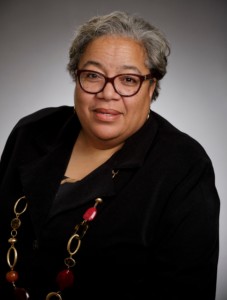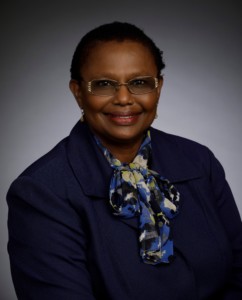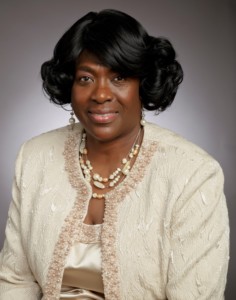HOUSTON (June 3, 2020) – Now, more than ever before, the world is seeing the intersection of nursing with public health policy. According to the Centers for Disease Control and Prevention (CDC), the health of our nation is influenced by public health policies. And, with a countless number of nurses serving on the frontline of this COVID-19 pandemic, making the right decisions is crucial.
Drs. Michelle DeBose, Ejim Sule, and Debbie Ann Jones of Prairie View A&M University’s College of Nursing recognized the need and collaborated to compose Chapter 3: Evidence-Based Policy Making in “Health Equity and Nursing: Achieving Equity through Policy, Population Health, and Interprofessional Collaboration.” The chapter, published in the 2020 edition of the book, seeks to define evidence-based policymaking, the role nurses play in the process, and evidence used to influence decisions.
“Just like nurses depend on evidence-based research to make decisions, lawmakers also depend on various kinds of evidence to make decisions,” reads an excerpt from the chapter. “Such evidence is derived from leading nursing organizations, expert testimony, consumer advocacy, expert witnesses, case studies, think tanks, and professional and voluntary organizations along with a number of federal and nonfederal agencies.”
As frontline health care workers, nurses are directly affected by policies.
“Nurses are essential when it comes to health care policies that impact how they provide care. They advocate for patients before the United States Congress through the American Nurses Association (ANA) and the National League for Nursing (NLN). These organizations follow the development of bills, and they send out emails and request for members who are nurses to contact their senators or Congressmen/women regarding how to vote on health care bills and issues,” explained Sule.
The pandemic has further revealed how necessary nurses are to public health and how frequently overlooked their needs are.
“Since the recent unprecedented events due to the novel coronavirus global pandemic, the delivery of health care has become very challenging. COVID-19 has devastated the world,” remarked Jones. “I never thought the day would come that a nurse would be asked to reuse personal protective equipment in a hospital. The thought of it is unimaginable.”
The pandemic also uncovers how critical health policy is for the public as well.
“We have been able to see with COVID-19 the disproportionate numbers of African Americans who are dying from coronavirus,” said DeBose. “Communities of African Americans where the state population is under 15-percent have confirmed coronavirus deaths of greater than 40-50-percent. Health policy comes into play when these communities are able to benefit from mandated free testing and economic relief provided in the CARES Act stimulus package.”
And health care policies that include nurses are necessary to make lasting change.
“Nurses are stakeholders who must be brought in from the beginning of the health care policy discussion. Making them part of the solution will hopefully bring about compliance and a permanent fix to some of our health care issues,” said Sule.
By being aware of which professional organizations are available to help impact these decisions, nurses are better able to advocate for fair labor conditions that protect them and the patients in their care.
“As nurses, we must be in positions where our voices are heard. This can be done by becoming board members of health care and educational organizations to insist that we, as a nation, uphold essential health care access for all citizens. We have to protect those with pre-existing health conditions so that they can receive affordable health care,” said DeBose.
With this chapter, Sule, Debose, and Jones are helping shape a new generation of informed nurses.
“New health policies should be written as it relates to ensuring that nurses and other health care providers have the necessary equipment that is needed for providing safe health care practices to patients,” said Jones. “Because we are dealing with real people, it is essential that nurse leaders look at ways of how to use evidence to support the need for policy changes and new policy development. The chapter that my colleagues and I wrote adds to the body of nursing knowledge, as it relates to how nurses write evidence-based policies to ensure health equity for all.”
DeBose emphasized the importance of working together to share knowledge, saying, “This collaborative experience allowed us to learn from each other and share our individual and collective view on how valuable health policy is for the citizens of our nation.”
And with this new chapter, Jones, Sule, and DeBose are ensuring nurses can wield their full power. There’s no better way to thank our heroes than that.
###
By Marley Crusch



